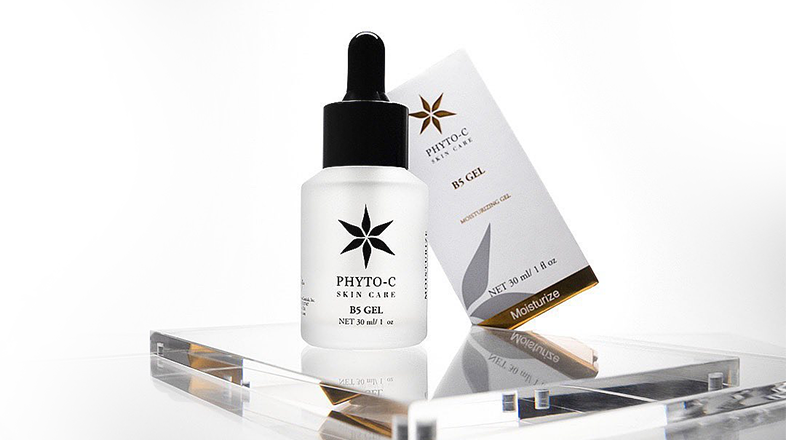The skin of a sensitive nature responds rapidly to strong chemical composition, creating redness and uncomfortable itchiness. The selection of appropriate vitamin C serum becomes essential because it enables people to avoid irritation and achieve brighter and healthier skin. The popular properties of Vitamin C in facial skin care include its effectiveness in dullness reduction skin tone normalization and collagen creation assistance. Yet, not every Vitamin C variant suits sensitive skin types. The incorrect selection between types of vitamin C ingredients or concentrations might trigger unexpected adverse reactions. The following guide provides information about choosing a proper vitamin C serum for sensitive skin alongside application recommendations and usage pitfalls to avoid. Using vitamin C properly transforms it into a reliable skincare component that brings radiance while keeping comfort levels untouched.
Common Mistakes People Make with vitamin C serum for sensitive skin online
Many people misuse vitamin C, which worsens their skin condition. Selecting very concentrated vitamin C serum for sensitive skin online without first developing tolerance is a primary mistake in its application. Starting your skin with a 20% L-ascorbic acid solution may cause extreme skin reactions due to its requirement for adjustment time. Using Vitamin C serum on wet skin enhances absorption but simultaneously elevates sensitivity levels toward the product. Users who mix strong exfoliating acids with Vitamin C serum create greater risks for skin irritation.
The risk of UV damage on the skin increases significantly when sunscreen is omitted after applying Vitamin C to the face. Incorrectly storing Vitamin C by exposing it to heat, air, and light makes the product both ineffective and irritating due to potency deterioration. Human skin benefits efficiently from vitamin C when users abstain from the mistakes described earlier.
Why Not All Vitamin C Serums Are Safe for Sensitive Skin
Vitamin C serums show diverse levels of potency while considering sensitivity needs in their composition. The widely employed L-ascorbic acid stands as the most effectively potent agent in Vitamin C solutions, yet its acid content generates redness along with skin irritation. This particular skin type needs stable yet mild solutions to gain beneficial effects without unpleasant side effects. The pH value of serum remains a crucial consideration since solutions below 3.5 pH may create excessive skin inflammation. The addition of artificial fragrances together with alcohol and preservatives in serums increases sensitivity levels for the user.
Vitamin C products that oxidize rapidly transform into substances that both lose their effectiveness and become potentially dangerous for use. People who experience skin reactivity should select light derivatives of vitamin C substances that deliver both anti-aging and brightening benefits while avoiding negative effects. Knowledge about different types of vitamin C allows you to select a skin-friendly solution that keeps your skin healthy without compromising its happiness.
Finding the best vitamin C serum for sensitive skin Compatibility
Delicate skin obtains better results from L-ascorbic acid's less harsh derivatives instead of using the acidic original form. For delicate skin, the following best vitamin C serum for sensitive skin derivatives represent the best options:
- The antioxidant and anti-breakout benefits of Sodium Ascorbyl Phosphate (SAP) exist alongside its water-friendly nature, making it easier and gentler than traditional L-ascorbic acid.
- Sensitive skin finds smooth hydration through the stable form of Magnesium Ascorbyl Phosphate (MAP), which provides soothing properties suitable for delicate skin types.
- The mild form of vitamin C known as ascorbyl glucoside transforms into active vitamin C within the skin through application while delivering a steady stream of its advantages over time.
- Tetrahexyldecyl Ascorbate (THD) functions as an oil-based antioxidant that penetrates deeply into skin tissue without causing any irritation, therefore making it ideal for dry along sensitive skin types.
Dos and Don’ts of Using Vitamin C Serum on Sensitive Skin
Applying good vitamin C serum for sensitive skin should be done carefully because improper application may cause skin irritation. Perform a patch test before using the solution on your facial skin. You should avoid combining Vitamin C with exfoliating products that have strong active ingredients such as AHAs and BHAs. The appropriate amount of Vitamin C solution for beginners should fall within 5-10% strength. Avoid using this treatment on injured or red skin.
The application should conclude with a hydrating moisturizer, which acts as a barrier to sustain moisture while protecting your skin. The use of Vitamin C twice a day should be limited in case you experience frequent skin redness. By following these simple practices about what to do and not to do, your sensitive skin will receive all Vitamin C advantages safely.
How to Introduce Vitamin C Serum without Irritating Your Skin
Sensitivity in your skin requires you to ease your way into using Vitamin C. To reduce sensitivity, use Vitamin C formulas with 5 to 10 percent concentration that should be applied every other day instead of daily. Drinking your Vitamin C serum in the morning serves as your main opportunity to receive antioxidant defense against outdoor stressors. The final step should include using a hydrating moisturizer to protect the skin from drying out.
Launch the serum smoothly by joining the Vitamin C content to your face lotion to reduce its concentrations. The application of Vitamin C should be avoided on the same days you plan to exfoliate to prevent sensitivity. Start your skin on the recommended schedule for Vitamin C applications then you can extend to daily use only if your skin demonstrates good tolerance. Patients need to begin with small amounts of vitamin C exposure while watching their skin for adverse reactions to achieve maximum brightening effects without skin irritation.
Myths About Vitamin C Serums and Sensitive Skin
Several false beliefs exist about vitamin C that can confuse individuals who have skin that reacts easily. Many people believe sensitive skin avoids using vitamin C completely, although this claim proves untrue. While L-ascorbic acid might be too strong, gentler derivatives make it possible to enjoy its benefits without irritation. Another myth is that higher concentrations mean better results. The optimal level for sensitive skin falls between 0.5% and 15% because amounts greater than 15% can lead to unpleasant skin reactions.
The use of Vitamin C during nighttime can result in doubts among users but this antioxidant provides benefits throughout any part of your day when combined with sunscreen application. Natural sources of Vitamin C such as lemon juice can damage the skin barrier severely because they possess high acidity. Imperfect knowledge about these myths enables sensitive skin users to develop better choices for their skincare practices.
The Following Indicators Signal Your Selection of an Incorrect Vitamin C Serum
Your skin shows signs like redness or itchiness and excessive dryness that point to using the incorrect concentration or formula of the product. Your skin will indicate that a serum is inappropriate for your skin type through painful sensations or skin burning. Your complexion becomes a warning sign when peeling occurs while tiny bumps appear on the skin surface, indicating an aggressive product formulation.
Sun sensitivity problems can signal an improper formula in your serum or inadequate sunscreen use. Any indications such as skin symptoms should lead you to choose milder vitamin C products or reduce your application frequency by using moisturizers to minimize its effects. The signs you notice should serve as indicators to maintain healthy and non-irritated skin.
When Will Sensitive Skin See Vitamin C Benefits & Why Application Matters
Sensitive skin requires patience when using vitamin C serum for sensitive combination skin. It takes sensitive skin four to eight weeks to manifest visible improvement points, whereas normal skin types frequently react within three weeks. Normal skin adjustment requires additional time to tolerate the benefits during this period because irritation risks exist. The key to seeing results faster lies in the right application. People should apply Vitamin C before sunrise to provide their skin protection from daily environmental aggressors.
Ritualistic use of a low-concentration serum enables the skin to make natural adjustments through time. Using a hydrating moisturizer together with sunscreen protects while improving the effectiveness of Vitamin C application. When applying Vitamin C, you should avoid excessive amounts of the product with high concentrations since this may produce irritation instead of desired advantages. Proper skin care activity enables sensitive skin to gradually benefit from Vitamin C serum's color-brightening and anti-aging effects.
Sensitive skin needs this optimal skincare plan when using vitamin C serum appropriately
Sensitive skin benefits maximally from vitamin C application when combined with ingredients that have a calming effect. The initial step of a good skin care regimen requires using a fragrance-free cleanser to eliminate surface dirt without causing skin dryness. Choosing a hydrating toner with ingredients such as aloe vera or chamomile calms inflammation before and after applying Vitamin C serum and can help.
Protect your Vitamin C serum application by using a moisturizer that features either ceramides or hyaluronic acid to form a strengthening barrier against moisture loss. The last step should include sunscreen application, which functions as a protective layer against UV exposure. A straightforward daily routine will preserve your skin health together with a radiant complexion while preventing any unwanted skin irritation.
Conclusion
The brightening effects of Vitamin C remain available to everyone who has sensitive skin. Following proper use instructions for your selected vitamin C product together with correct application techniques and mistake avoidance will help you get the best results for smooth skin without irritation. A gentle skincare practice alongside monitoring your skin's reactions creates the conditions for Vitamin C to become your essential product for radiant skin health. You can try out dermatologist recommended vitamin C serum for sensitive skin called Phyto-C products for better results.




 Next Post
Next Post